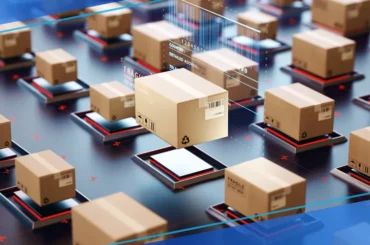An e-commerce Content Management System or CMS is a software system to publish, edit, and change contents, as well as to modify the visual look of contents on your e-commerce website. An e-commerce CMS can go a long way in scaling up your website as your business grows over the years.
In the case of e-commerce, the main source of contents that feeds the management system is the product you are selling. Apart from this, you should also consider additional functionalities to solve other problems. For example, you should be able to link a set of items to a user in the form of a shopping cart or a completed purchase.
While small and medium businesses come with their fair share of business challenges, e-commerce for enterprise businesses is a whole new challenge altogether. In this article, we’ll be looking at all the parameters that you should consider while choosing a CMS for your enterprise business. Let’s begin!
Does your business need an e-commerce CMS?
When it comes to any industry, businesses can be segmented into small, medium and enterprise sizes according to the volume of business. At its core, any CMS aims at minimizing resources while keeping profits high. Below is a brief of the different kinds of expectations that are set for e-commerce CMS software depending on the business size.
If you are a business owner, you can also evaluate if the same parameters apply to your business.
Small business needs
Small businesses are local and offer a limited range of products and services. These businesses usually don’t stock up in high numbers and don’t expect to develop an international consumer base for some time.
Another notable factor is that small businesses mostly operate on one-language sites. A flexible CMS that offers a smooth experience and great customer service is always on priority for small businesses as they don’t have the time to heed to slow websites.
Shopify, for instance, is a great example of a hassle-free CMS that many small and medium businesses prefer.
Enterprise business needs
As a medium-sized or large business, an enterprise company is expected to process a sizable product or service inventory on a daily basis. These businesses plan to expand their business on a global scale, so they will require websites for different regions, languages, and the respective product lines.
While enterprise businesses don’t need to shed a ton of money on a custom-made content management system, they can afford to invest in a good quality CMS that can make things easier for them.
Must-have features for an enterprise e-commerce CMS
While there is no solution that fits all business requirements like a glove, it’s not hard to jot down the needs of what enterprise e-commerce businesses are looking for. Without further ado, let’s look at some of the features that a good CMS must possess:
Headless content management
Headless is a solution that decouples the website’s presentation layer from the backend e-commerce functionality to offer a flexible, seamless digital experience.
In simple terms, content like web page text, blog posts, product information, etc. is put into a database. This data then flows into a range of applications via RESTful API. This way, all your content is optimized to look perfect for a variety of devices like tablets, mobile devices and computers.
Airtight security
Data breaches are bad for businesses of all sizes and can be extremely damaging to your business. Enterprise businesses are constantly on the lookout for solutions that solve these data hacks and can bring back the money lost in protecting data.
Security should remain to be a top priority whilst choosing your CMS as they process almost all of your sensitive customer data. It’s important to filter out faulty solutions with security flaws that provide back doors for illicit hackers and data-mining bots. A thorough background check on compliances like PCI and DSS will help you determine if a solution is safe or not.
You should also ensure that your CMS should have the capability to patch things up when/if things go haywire.
Round-the-clock customer support
One of the things that can’t be a bargain for bigger businesses is customer service. A high-level support package is essential for any enterprise-level company in search of a CMS.
Things can and do go wrong, and the consequences of a broken website get worse in line with company size. You will require access to a dedicated tech team 24/7 so that even if there is an issue on a particularly busy, you can get it resolved ASAP and return to business.
Content templates
Content templates are an essential part of your e-commerce website and can be used to create an efficient workflow and save time in making time-consuming changes.
Content templates examine what you write and generate meta descriptions and recommend categories and tags automatically. Some also help resize product images to fit your page or suggest widgets based on tags. If digital marketing is a priority for your business, we recommend that you choose a CMS dedicated to business process automation.
Built-in SEO tools
The number one result in Google’s organic search results has an average CTR of 31.7 percent. The number one organic result is 10 times more likely to receive a click compared to a page in number 10 spot. . . On average, moving up one spot in the search results will increase CTR by 30.8 percent. (Source)
The above statistic is just the staggering reality of how influential your website’s SEO can be for your business. Most choices are made on Google’s first page, so it’s fair that you invest in tools that will help you get there.
The best CMS platforms help you stay on top of changes in search engines and incorporate easy-to-use tools to help buyers and writers publish SEO-optimized articles, blog posts, and commodity descriptions on your website.
Easy organization and administration
A dealbreaker while choosing an enterprise-level CMS is its ability to offer its clients a spectrum of simple and powerful admin tools in a single software package.
On a regular basis, site administrators have to be able to track scheduled content, manage notifications, add assets, and tweak plugins without hopping from one program to another. The best e-commerce CMS platforms are usually intuitive and easy to use and avoid unnecessary drop-offs.
Workflow automation
Workflow automation is a way for businesses to streamline their processes. The basic concept is to identify repetitive tasks or any manual process that could be better handled by software, apps, or tech. You then take those tasks out of your employees’ hands with automation rather than wasting valuable staff-hours.
Workflow automation like content creation requires a structured approach and can be well-administered by good CMS platforms.
Multi-platform integration
As you plan the road ahead for your business, it’s also important to have a website that grows along with it. A good e-commerce CMS can help you make the transition to bigger and better functionalities as your business expands.
Whether it’s going a step further and launching apps or taking the leap for a VR experience or a 360-degree website, a CMS should be able to handle your business requirements and support your product journey with time.
Tiered access
Enterprise businesses consist of a sizeable amount of employees working at different roles, both in the corporate office and in warehouses. As important as it is to follow hierarchy in real life, tiered permissions can also be implemented on your business software.
For example, the CMS should be able to provide the system admins to create user profiles for select customers while a stockroom assistant’s role may be restricted to simpler tasks.
Comprehensive analytics
As essential as it is to aggressively do business to scale up, it’s also important to measure your moves along the way. A successful business model is but a series of the best innovations stacked over one another.
There’s no better way to replicate success than to measure it effectively. At an enterprise-level, your online store success depends on knowing who your potential customers are like the back of your hand.
A good CMS interface with built-in analytics tools like Google Analytics or MonsterInsights can help you track and replicate all your best practices to further scale your business.
Top enterprise Content Management Systems in the market
While it comes to zeroing in on a perfect CMS for your enterprise business needs, it may seem like a daunting task. But, worry not, we’re here with a list of enterprise CMSs that have made a name for themselves in the e-commerce industry.
These CMS interfaces have historically proven to work well for big brands all over the world. So, here goes!
Magento
Just like how Shopify and WooCommerce are leaders in providing CMS interfaces for small and medium-sized e-commerce businesses, Magento is a leader in providing e-commerce CMS solutions for enterprise businesses. The Magento interface is specifically designed for bigger businesses with a host of themes and features to customize your e-commerce website.
PrestaShop
PrestaShop is another forerunner that specializes in e-commerce CMS. PrestaShop installations are known to be light, making them more server-friendly; in turn, customers enjoy faster, more responsive sites. Companies using PrestaShop can choose to design their own front-facing sites or can build on the preset PrestaShop themes.
Joomla
Another PHP-based CMS, Joomla, is ideal for medium-sized businesses looking to occupy a digital presence. Joomla is ideal for large websites and has a back end designed for multisite management. This can be a great boon for those businesses looking to expand over multiple websites. Joomla, like others, also allows you to create your site outside the constraints of a pre-coded environment.
BigCommerce
BigCommerce, much like its name, is suited for large e-commerce businesses that are looking for a robust e-commerce CMS. It is a powerful SaaS e-commerce platform where you can pay a single subscription fee and gain access to content management, design, support, marketing features, a checkout, and more.
Conclusion
As we draw to the end of this article, we only have only thing to say– nobody knows your business as you do, enterprise or otherwise. With that being said, you can choose the best CMS solutions for your website by performing sufficient research and finding the right fit for your business.
With this, we’ve finally reached the end of this blog. We hope that this article provided you clarity on how to choose the right solution for your business. Meanwhile, check out how Razorpay’s latest e-commerce offering Thirdwatch is helping e-commerce businesses increase deliverability and profitability!




